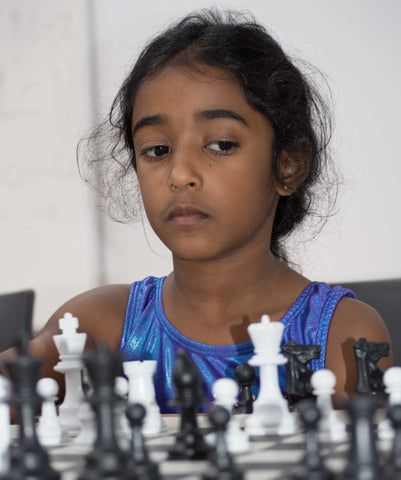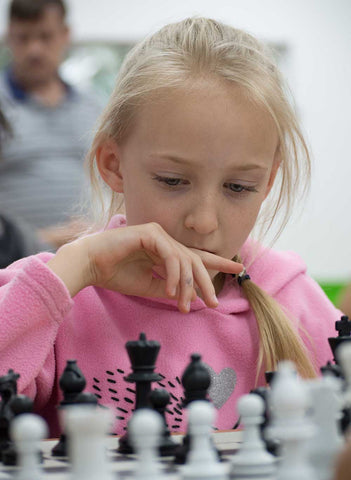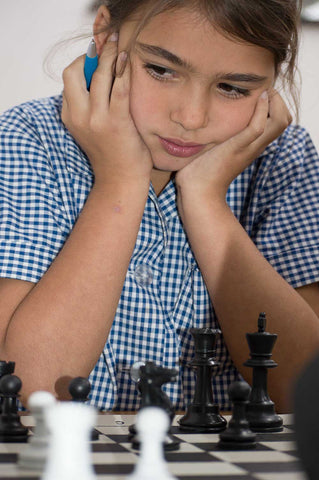Chess can be a powerful tool to help girls identify themselves as leaders. In celebration of Women's Day, we look at why our girls need chess.
The number of parents who sign up their sons for chess lessons dominates the number of those who sign up their daughters.
Why is that? Are boys better at playing chess than girls? While looking at the pigtailed first graders drinking apple juice and moving sticky chess pieces in incomprehensible patterns and high school girls who chat excitedly about new openings and tactics as they play chess on their rose-gold iPhones, I don't think the question comes up.

But society has been whispering the same message for more than 100 years: chess is not for women and, women are innately bad at it. Repeated exposure to the stereotype that girls aren't as good as boys, especially in the face of losing games, can cause our girls to give up on chess.
Chess teachers and chess clubs all report that while the number of girls who start playing chess is increasing, girls still tend to drop out at an intense pace.
Some of that might be due to something called stereotype threat. In a 2013 study, the US psychologists Hank Rothgerber and Katie Wolsiefer found that girls as young as six are aware of the stereotype that ‘good chess players are usually boys’. Even worse, awareness of the stereotype affects the way girls play. The psychologists analysed data from 12 chess tournaments and calculated the expected winning percentages for different pairings, finding that when girls played against boys who presented a strong or moderate challenge, they lost more than they should have.

If our girls believe that they aren’t naturally gifted at chess, then working to improve at the game would be an exercise in futility.
But why is it important that girls, and women, play chess? We know that even minimal exposure to chess will raise standardised test scores in math and reading and that chess can increase cognitive skills; both critical thinking and analytical.
But there is undoubtedly a benefit to young girls learning that they can compete on the same intellectual playing field as boys. The opportunity to overcome stereotype threat is an important practice for girls who might want to go into other fields full with stereotypes about women, or simply as an opportunity to perform well when no one expects you to do so.
And faith in one’s intellectual abilities can go a long way towards overcoming the soul-rattling feeling of being the only girl in the room, whether it’s at a chess tournament, or in a computer science class. It’s important that girls learn how to occupy space, and ultimately excel, in areas that are typically viewed as too aggressive and competitive for the ladies.

Chess is built on initial equality: two players, two sides, 32 pieces, 64 squares, infinite moves. But two sides are hardly ever equal. In South Africa, only 26% of chess players rated by the Chess SA are women. It's a numbers game and it's one we should aim to equalize.


